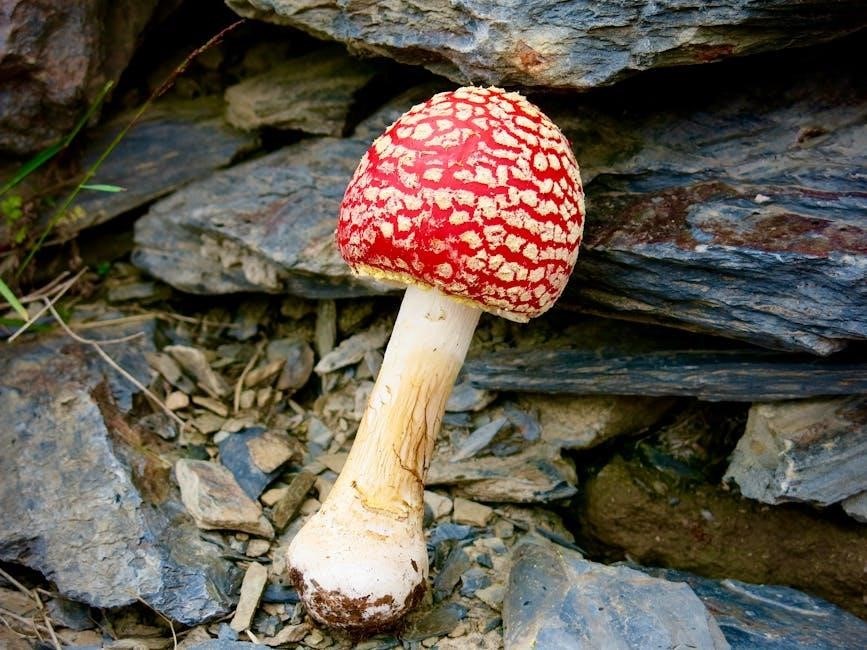toxic foods for dogs pdf

Many common human foods can be harmful or even toxic to dogs‚ causing symptoms ranging from mild discomfort to life-threatening conditions. Awareness is key to prevention.
1.1 Importance of Awareness
Awareness of toxic foods is crucial for dog owners‚ as certain human foods can cause severe health issues or even death in dogs. Common culprits include chocolate‚ grapes‚ onions‚ and xylitol-containing products. Dogs metabolize foods differently‚ making seemingly harmless items potentially deadly. Recognizing these risks ensures safer environments and informed decisions‚ preventing accidental poisoning and promoting timely veterinary intervention when needed.
1.2 Common Sources of Toxic Foods
Toxic foods for dogs often lurk in everyday items‚ such as chocolate‚ grapes‚ onions‚ garlic‚ avocados‚ nuts‚ caffeine‚ alcohol‚ and xylitol-containing products like sugar-free gum and baked goods. These substances can cause varied reactions‚ from mild discomfort to organ failure. Staying informed about these common sources is essential to safeguard pets and ensure their environments remain free from potential hazards.

Chocolate
Chocolate is highly toxic to dogs due to theobromine‚ a compound that can cause severe health issues. Darker chocolates and large amounts pose the greatest danger.
2.1 Theobromine: The Toxic Compound
Theobromine‚ a naturally occurring compound in chocolate‚ is highly toxic to dogs. It affects the nervous system‚ heart‚ and kidneys‚ leading to symptoms like vomiting‚ tremors‚ and arrhythmias. Dark chocolates contain higher concentrations of theobromine‚ increasing the risk of severe poisoning. Even small amounts can be dangerous‚ depending on the dog’s size and the chocolate’s type and quantity consumed.
2.2 Factors Affecting Toxicity Levels
The toxicity of chocolate in dogs depends on the type of chocolate‚ the amount consumed‚ and the dog’s size. Dark chocolate contains higher theobromine levels than milk chocolate‚ making it more dangerous. Smaller dogs are at greater risk due to their lower body weight. Processing methods can also reduce theobromine content‚ but even small amounts can cause symptoms. Always consider these factors when assessing potential poisoning.

Grapes and Raisins
Grapes and raisins are highly toxic to dogs‚ causing kidney failure. The exact toxin is unknown‚ but even small amounts can lead to severe health issues.
3.1 Unknown Toxins and Kidney Failure
Grapes and raisins contain unidentified toxins that can cause acute kidney failure in dogs. The exact mechanism is unknown‚ but ingestion leads to severe renal damage. Even small amounts can trigger this reaction‚ making these fruits highly dangerous. Immediate veterinary attention is crucial if consumption occurs‚ as timely treatment can prevent fatal outcomes. The mysterious nature of the toxin underscores the importance of strict avoidance to protect canine health.
3.2 Symptoms of Ingestion
Ingestion of grapes or raisins can lead to immediate symptoms such as vomiting‚ diarrhea‚ lethargy‚ and dehydration. As toxicity progresses‚ dogs may exhibit abdominal pain‚ tremors‚ and seizures. In severe cases‚ acute kidney failure develops‚ characterized by reduced urine production and elevated creatinine levels. Prompt veterinary intervention is critical to managing these symptoms and preventing long-term renal damage or fatal outcomes.

Onions and Garlic
Onions and garlic contain thiosulphate‚ a compound toxic to dogs‚ causing damage to red blood cells and potentially leading to anemia. Onions pose a greater risk than garlic due to higher toxin concentration.
4.1 Thiosulphate and Its Effects
Thiosulphate‚ found in onions and garlic‚ is highly toxic to dogs. It damages red blood cells‚ leading to anemia. Even small amounts can cause oxidative damage‚ disrupting normal cellular function and potentially resulting in severe health complications. The toxin accumulates over time‚ making repeated exposure particularly dangerous. Symptoms include lethargy‚ pale gums‚ and rapid breathing‚ requiring immediate veterinary attention to prevent life-threatening outcomes.
4.2 Cumulative Toxicity in Dogs

Cumulative toxicity in dogs occurs when repeated exposure to small amounts of toxins‚ like thiosulphate from onions and garlic‚ builds up over time. This gradual accumulation can lead to severe health issues‚ including anemia and organ damage. Even foods containing minimal toxin levels can become dangerous when consumed regularly‚ emphasizing the importance of strict dietary monitoring to protect your dog’s long-term health and well-being.
Avocado
Avocados contain persin‚ a toxic compound harmful to dogs‚ causing vomiting and diarrhea. High fat content also poses risks‚ potentially leading to pancreatitis in dogs.
5.1 Persin: The Toxic Element
Persin is a toxic compound found in avocados‚ particularly in the leaves‚ bark‚ and pit. While its effects vary by species‚ it can cause vomiting and diarrhea in dogs. High fat content adds risks‚ potentially leading to pancreatitis. However‚ the exact toxicity levels in dogs remain unclear‚ so caution is advised to prevent adverse reactions.
5.2 Risks of High Fat Content
Avocados’ high fat content poses risks for dogs‚ potentially leading to pancreatitis‚ an inflammatory condition causing vomiting‚ diarrhea‚ and abdominal pain. While not toxic like persin‚ excessive fat intake can strain a dog’s digestive system‚ especially for those prone to weight gain or with pre-existing conditions. Moderation or avoidance is recommended to prevent health complications.
Nuts
Nuts‚ such as macadamia nuts‚ can harm dogs‚ causing weakness‚ vomiting‚ and tremors. Their high fat content may also lead to pancreatitis‚ a serious health issue for dogs.

6.1 Macadamia Nuts: Specific Risks
Macadamia nuts are highly toxic to dogs‚ causing symptoms like weakness‚ depression‚ vomiting‚ tremors‚ and hyperthermia. The exact toxin is unknown‚ but even small amounts can trigger these effects. Symptoms typically appear within 3–12 hours and may last up to 3 days. While most dogs recover with supportive care‚ severe cases require veterinary intervention. Always keep macadamia nuts out of your dog’s reach to prevent potential harm.
6.2 Other Nuts and Their Dangers
Besides macadamia nuts‚ other nuts like almonds‚ walnuts‚ and pecans can harm dogs. High fat content in these nuts can lead to pancreatitis‚ a serious condition. Some nuts may cause gastrointestinal upset or even neurological symptoms. While not always fatal‚ ingestion can still pose significant health risks. If your dog consumes any nuts‚ monitor for signs of illness and consult a veterinarian or pet poison hotline immediately for guidance.
Caffeine and Alcohol
Caffeine and alcohol are highly toxic to dogs‚ affecting their heart and nervous systems; Even small amounts can lead to severe health issues or death in dogs.
7.1 Caffeine Toxicity in Dogs
Caffeine is highly toxic to dogs due to their sensitivity to methylxanthines. Ingestion can cause hyperactivity‚ palpitations‚ seizures‚ and even death. Symptoms escalate rapidly‚ necessitating immediate veterinary care. Common sources include coffee‚ tea‚ energy drinks‚ and certain medications. Even small amounts can be dangerous‚ making it crucial for dog owners to secure such items. Prompt treatment is essential to prevent fatal outcomes in dogs.
7.2 Alcohol’s Impact on Canine Health
Alcohol is highly toxic to dogs‚ causing severe health issues even in small amounts. Ingestion can lead to vomiting‚ diarrhea‚ difficulty breathing‚ and rapid heart rate. Prolonged exposure may result in coma or death. Dogs metabolize alcohol poorly‚ making them highly susceptible to its effects. Immediate veterinary care is essential if alcohol consumption is suspected to prevent fatal outcomes and ensure proper treatment. Always keep alcoholic beverages out of reach.

Xylitol
Xylitol‚ a common sugar substitute‚ is highly toxic to dogs‚ causing rapid hypoglycemia and potential liver failure. Found in sugar-free gum‚ candies‚ and baked goods‚ it poses severe risks.
8.1 Common Sources of Xylitol
Xylitol is commonly found in sugar-free gum‚ candies‚ toothpaste‚ baked goods‚ and some peanut butters. It’s also present in low-calorie snacks and dietary supplements‚ making it a widespread household risk for dogs. Proper storage and awareness of these products are essential to prevent accidental ingestion and potential toxicity.
8.2 Symptoms of Xylitol Poisoning
Xylitol poisoning in dogs can cause rapid symptoms‚ including vomiting‚ diarrhea‚ and lethargy. Severe cases may lead to seizures‚ tremors‚ or even liver failure. Hypoglycemia often occurs within 30 minutes of ingestion‚ while liver damage may develop later. Immediate veterinary attention is crucial to prevent long-term health complications and ensure proper treatment.
Prevention and Emergency Response
Preventing pet access to toxic foods ensures their safety. Secure potentially dangerous items and educate family members. In emergencies‚ contact a vet or poison hotline immediately for guidance.
9.1 Safe Storage of Toxic Foods
Securely store harmful foods like chocolate‚ grapes‚ and nuts in sealed containers or high cabinets to prevent accidental ingestion. Regularly check expiration dates and avoid leaving edible waste in accessible areas. Dispose of moldy or spoiled foods properly to minimize risks. Clear labeling helps ensure everyone in the household understands what is off-limits to pets‚ enhancing overall safety and awareness.
9.2 Emergency Contact Information
In case of suspected poisoning‚ immediately contact the ASPCA Animal Poison Control Center at (888) 426-4435 or the Pet Poison Helpline at (800) 213-6680. These hotlines provide 24/7 assistance. Always have your veterinarian’s contact information handy and seek emergency care if symptoms arise. Prompt action is critical to ensuring your dog’s safety and preventing severe health complications.
Leave a Reply
You must be logged in to post a comment.